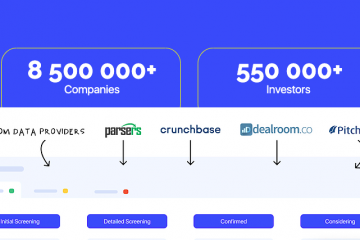Smart insurance with Big data
Big Data is the basis of the business of insurance companies, whose work is completely based on information: statistics, information about customers, insurance cases and the probability of their occurrence, as well as financial evaluation of all these data. As the “big three” of modern information technologies (big data, machine learning and the Internet of things) increase the profits of insurers, predicting the needs of current and finding new customers, as well as reduce their costs, reducing payments for fraudulent transactions.
Why insurers need Big Data, Machine Learning and Internet of Things
Digitalization has also captured the insurance sector. A wide product line and an abundance of information determine the use of big Data, Machine Learning and Internet of Things technologies by insurers in the following areas:
- personalization of insurance policies;
- risk assessment in the formation of insurance tariffs;
- prevention of insured events;
- anti-fraud;
- automation of routine processes and operations.
The use of analytical technologies Big Data and Machine Learning is more than justified, because in the insurance business decisions are made taking into account the previous history and on the basis of a variety of input data.
Big Data for personalization of insurance policies
By analyzing big data about the client’s behavior, you can offer him a suitable insurance product in advance. For example, if a person is interested in hotels and flight schedules, he probably relevant insurance for tourists. And the one who looks at the sites with ads for the sale of apartments may need real estate insurance services. In this case, the insurance offer can be formed individually.
Machine Learning for the assessment of insurance risks
In the formation of insurance rates used underwriting technique – calculation of the probability of occurrence of an insured event and the assessment of potential risk. The decision is made based on the analysis of many parameters: information about the insured, the object of insurance, statistics of occurrence of insured events in similar situations, etc. Machine Learning models allow you to take into account all the input data and accurately determine the price of the insurance contract for each client individually.
In particular, the German insurance company Allianz SE, one of the leading financial corporations in the world, uses machine learning to quote VMI to new corporate clients. An additional advantage was the large data obtained and accumulated in the interpretation of the model results, including the identification of new features and patterns.
Internet of things to prevent insured events
Internet of Things allows you to get more information about the object of insurance, including online. For example, American insurance companies have come to the conclusion that the data from car sensors and sensors help to predict the probability of an accident 4 times more accurately and even sometimes to prevent it.
Thanks to IoT insurers get even more data, which makes it possible not only statistical (post factum), but also predictive Analytics, predicting the probability of events and modeling potential risks. This quantitative and qualitative analysis of information on insured objects contributes to the emergence of new insurance products, services and methods of work, as well as the development of the industry as a whole. In particular, the experience of the startup Neos, which together with insurance companies AVIVA (UK) and Munich Re (Germany), combines the Internet of things with real estate insurance, is interesting. The developed application allows you to remotely control all the systems of the “smart” house, warning owners about potential risks. Sensors of smoke, fire, gas, water leaks and unauthorized intrusion quickly transmit information to the server, where it is analyzed automatically. In case of detection of dangerous situations, for example, if the owners left the front door unlocked or the pipe under the sink began to leak, the policyholder will immediately receive a notification on his mobile phone. Timely elimination of the threat will prevent the occurrence of an insured event, which is beneficial to both the insurer and the insured.
Machine learning in anti-fraud health insurance systems
The profit of the insurance company depends directly on the cost of compensation for insured events, so it is critical for insurers to identify fraudulent transactions in order not to pay for them. Because of the huge amount of data, it is impossible to manually investigate each insured event, so machine learning comes to the rescue. The algorithms automatically analyze the data on insured events, identifying anomalies that are characteristic of fraud.
This allowed the aforementioned Allianz SE insurance company to reduce the risk of unjustified health insurance services by more than 2 times due to the prompt checking of bills before their payment, and not after. The analytical system based on Machine Learning checks each account from the medical institution, selecting insurance cases that may contain potentially fraudulent actions or have signs of deviations from the generally accepted norms of patient management. The work of the program is based on the analysis of data for several years and the processing of more than 100 signs of an insured event. Unlike expert systems with clear and pre-defined rules, machine learning uses historical information and reveals implicit patterns. As a result, the company has significantly facilitated the work of its experts and reduced costs.


